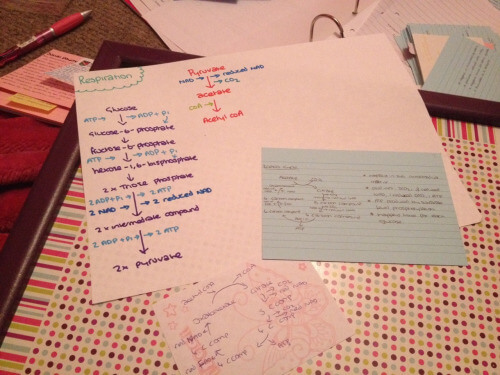We’ve all been there: your very nervous friend has just come out to you and now it’s your turn to respond.
Okay, so maybe we haven’t all been there. However, for some of our LGBTQ friends and classmates, this is a reality: the moment of coming out looms as a horrible, monster-under-your-bed kind of fear. For others–hopefully for most–it is an incredibly liberating experience. Unfortunately, the listener holds a lot of the power in dictating which direction the conversation goes. Yikes.
Here are some tips from LGBTQ students on how to not make their nightmare a reality.
1. Ask questions

You may have no idea what to say and that’s totally fine. The safest route? Ask questions. Julia Purks, a sophomore biology major at Boston College, said, “It shows… they don’t think it’s a bad thing or a good thing necessarily, but something that is important and worthy to be understood.” Just remember that the kind of question is key. “A lot of people seem to get stuck on the sex thing,” she said. So ask away, as long as your go-to question isn’t about sex. Let’s be real, people: we don’t need another Freud in the world.
2. Show some love

Sometimes a little bit of mom-like comfort can do the trick. Jamie Sladkey, a Youth Ministry major and graduate of North Park University in Chicago’s class of 2014, said her best friend—and the first person she ever came out to—reacted in the best way she could have hoped. “She told me that she loved me and she told me that I was good,” Jamie said. “She validated who I was and didn’t pressure me to say anything if I wasn’t ready.” Coming out is incredibly terrifying, so spread the love, folks. It really does help.
3. Give some high fives (digital or otherwise)

This is a big moment in someone’s life and it deserves congratulating. For Eric Roy, a junior finance and philosophy double major at Boston College, even something as simple as a positive text was enough. He decided to come out over Facebook on the day the Defense of Marriage Act was overturned. “A flood of texts came on my phone, all congratulating me on my coming out,” Roy said. Having a positive reaction can be the key to making everyone involved feel safe. Roy said, “Being able to finally feel comfortable in my own skin was the best feeling in the world.”
4. Be normal

Sometimes just being yourself is the best way to go. “The best reactions aren’t even worth remembering because they felt so natural,” said Michael Rolincik, a junior sociology and music double major at Boston College. “It comes up in conversation, there’s a small discussion and then we move on.” You don’t have to give some grand gesture of support. This is a big moment, but there’s no need to go have it written on a cake.
5. Avoid the stereotypes

For the safety of both yourself and everyone surrounding you, please avoid the stereotypes. There’s nothing more uncomfortable for someone coming out than hearing a reaction that sounds like it came out of a bad ‘90s sitcom. “‘Oh my God! We totally need to go shopping together!’ I mean, come on. Really?” Rolincik said about one of the worst reactions he ever received. Because every single gay person is both fashionable and interested in fashion, right?
6. Remember: you’re listening

Just as you shouldn’t assume that every LGBTQ student wants to shop until they drop, you also shouldn’t assume that you know what these students are feeling. “Some people tell me with some frequency that I’m ‘confused’ or ‘moving through phases,’” Roy said. If someone has gotten to the point that they feel comfortable coming out, rest assured they aren’t confused anymore. Avoid telling other people how they feel, and let them tell you.
7. Ditch the bible…

I’d like to say there’s no wrong way to respond, but that would be a lie. Some responses are just plain horrific. “I had an adult that I trust tell me that she thought this was Satan tempting me,” Sladkey said. They have as much of a right to their identities as you do to your religious beliefs, so if you don’t have anything nice to say, don’t say anything at all.
8. …And the biology book

Just as you shouldn’t ask about the mechanics of someone’s relationship, don’t condemn them for it. “My mom said it’s not normal because if you take away the emotions and feelings from a relationship, two people of the same sex—biologically—is not normal,” Purks said. “What the hell is a relationship without emotions and feelings? Two bodies in the same room?” Life, love and relationships are about a lot more than sex.
9. Don’t be smug

There can be a fine line between being supportive and being smug. You may be guilty of this without even realizing. A good rule of thumb? Avoid—at all costs—any reaction resembling “I told you so!” “There were a few people who said things along the lines of ‘I knew it!’” Roy said. “These responses can be hurtful. For all LGBTQ people, the first person that they come out to is themselves.” For Eric, his friends saying “I knew it!” invalidated all that time he spent agonizing over his own identity.
10. Watch your words

Sometimes poor wording can be your downfall. “I think words like ‘choice’ and ‘lifestyle’ undermine the fact that being LGBTQ is something that’s part of my identity—something I can’t really separate from myself,” Roy said. “It’s not a choice I ever had to make.” This is easy to fix; cut out those dreaded words like “choice” or “lifestyle,” but also avoid things like calling homosexuality a “preference.” Basically, anything that feels offensive probably is offensive.
For heterosexual students like myself striving to provide the best support possible for LGBTQ friends, we can’t forget that we have the easy job. We’re just the listeners; we aren’t the ones putting ourselves on the line. As much as we may want to fully understand our friends’ experiences, straight allies may never know what it’s like to fear having someone else reject our very identity. Because of my perspective, I can’t offer foolproof advice to anyone struggling with the reality of coming out—or to anyone striving to be a good friend. But I can share some advice that’s the closest thing to foolproof I’ve heard: “At the end of the day, the best thing you can do is love yourself—your true, authentic self,” Eric Roy said.
Wise words for anyone to live by.



















